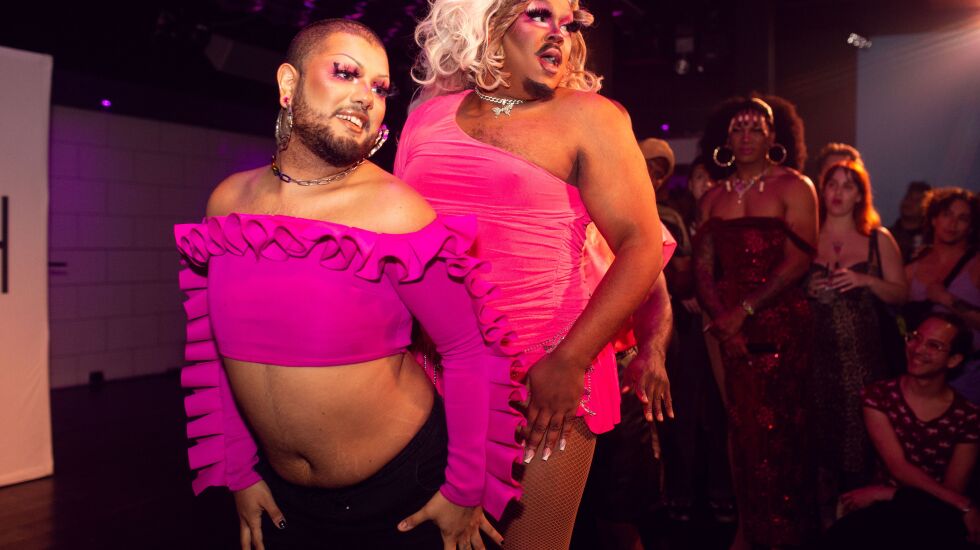
Drag artist pb didn’t “feel ready” for competitions.
The Andersonville resident had started in drag by making music videos during the pandemic, but only recently pondered breaking into the competitive scene. That changed with the announcement of “Our New BFF,” a drag competition structured around mentorship.
“I considered doing some competitions, but I didn’t feel ready,” said pb, a Season 1 competitor-turned-Season 2 mentor. “[Then] ‘Our New BFF’ gets announced. I was like ‘That’s something I’d actually feel comfortable with.’ I find myself more successful at drag when I’m working with other people.”
The biweekly live competition, most recently held at the Northalsted bar Splash Chicago, has held two “seasons” to date. The show paired each of eight contestants — selected from a pool of more than 80 applicants — with their own drag artist mentor. The mentors could do anything, whether simply helping to guide the artist through the competition behind the scenes or participating in the performance on the stage.
Creator and producer Miss Toto said most mentors tended toward the participatory side of the spectrum, working on choreography and then taking part in performances — and it didn’t hurt that the winning mentor and contestant would each get a $500 prize, with the contestant taking home a bigger prize package related to drag. Winners were determined through a combination of audience and judge votes, with eliminated mentors often coming back to guest judge alongside Toto and Vanity Unfair.
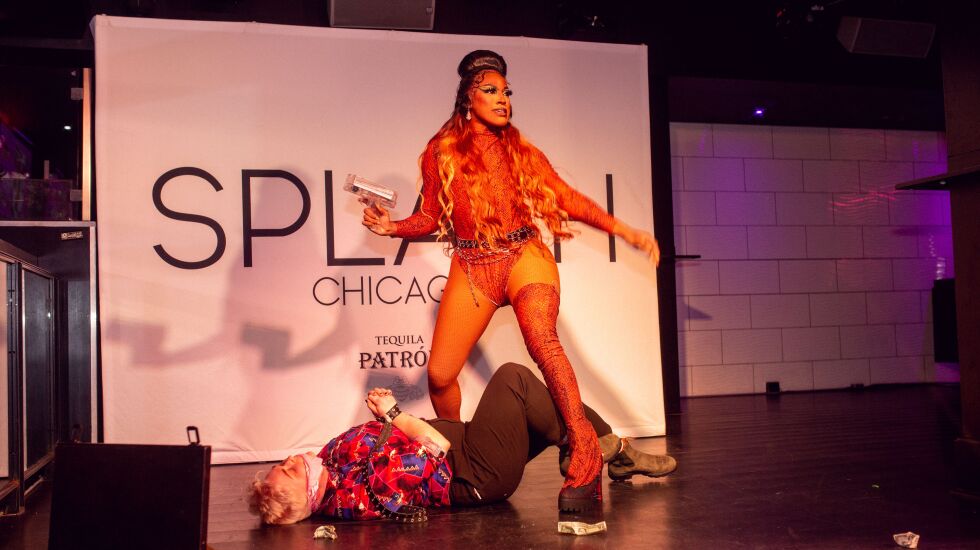
Toto said the mentors were hand-picked because they were among the most talented people they knew — but they were also there to fill a need the organizers saw in the community.
“What will set this competition apart, and what do people need?” Toto said they asked themselves when putting it all together. “A lot of times I’ve heard drag entertainers say they don’t have any guidance, or they don’t have a drag family. It’s nice to have someone in your corner.”
Added Vanity Unfair, the Season 2 co-host and Season 1 competitor: “You’re not alone in the dressing room. When you’re competing alone and you’re a new performer, you have to be your own cheerleader, and I think sometimes it’s helpful if someone else can be your cheerleader so you can feel good about your own ideas.”
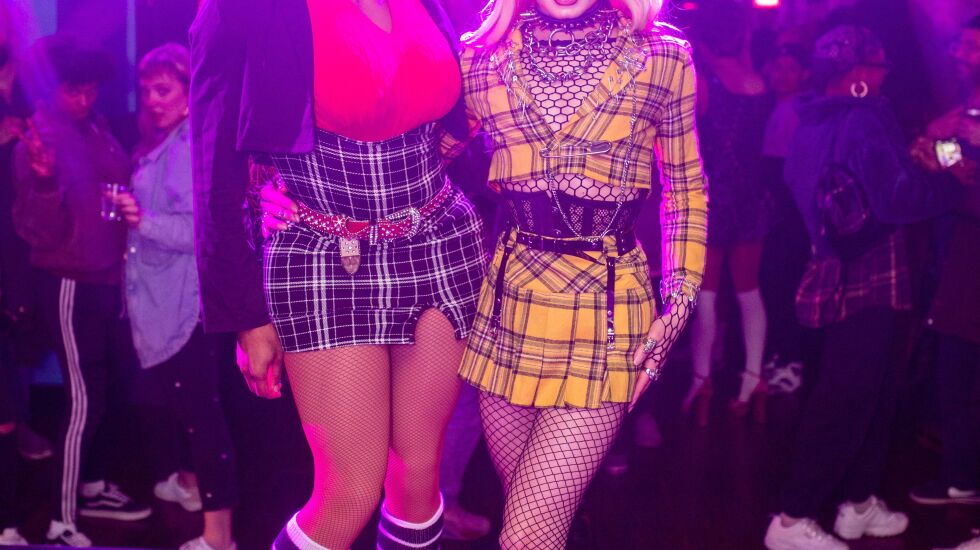
Mentorship and created community are part of the art medium’s history. The concepts of “drag families” and “drag houses” evolved through the 20th century — growing alongside house and ballroom culture — and brought together performers who were largely queer people of color into self-selected community. Early houses in New York City were often places for young queer kids to find surrogate families in place of their biological ones who had become estranged over their sexual orientation or gender identities.
Today, the drag family is part of what Toto was hoping to capture with the unique competition style. Their family now has 26 members, with Toto acting as one of the “drag mothers” in the group.
As in any family, sometimes help is just letting someone borrow a wig or an outfit (to relieve some of the financial burden of the medium), and sometimes help is being there to listen to their problems, about a performance or just life.
“We all love each other and are supportive of each other,” Toto said. “We treat each other like siblings.”
Those sorts of connections, while not always evolving into drag family relationships, shined through at “Our New BFF.”
“I have drag daughters and people outside of that I take on a mentor role for, but it was really amazing to have it put in a competition setting,” said Irregular Girl, another Season 1 competitor and Season 2 mentor. “I really learned a lot about myself, and I was able to coax things out of me — and out of her, too.”
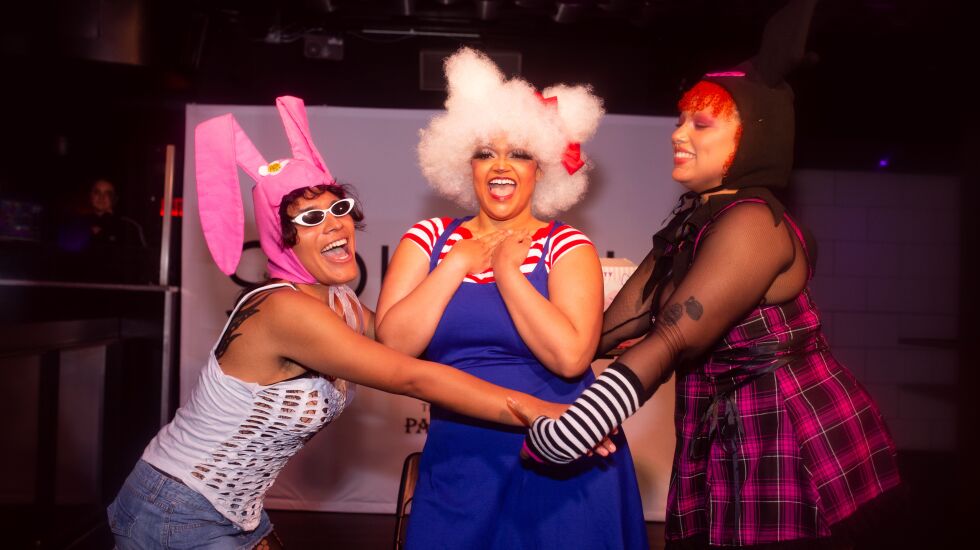
Irregular Girl considered themselves lucky to be paired with Tiny Miracle, a drag artist they’d already “loved and cared for’’ after befriending her on the local drag scene.
“It was really cool to be able to hone in on her vision and build out her craft,” Irregular Girl said. “We were both able to figure things out together. There’s a lot of trust that goes into it. There’s a lot of willingness to lean on each other. Even though I’m her mentor, I need to trust her to execute the work, and as much experience as I might have, I still have to bring it, because if I phone it in, she could go home.”
But the mentorship was a two-way street, as Irregular Girl found their competitive spirit reawakened after a period of some quiet and having to tackle tough tasks head on. One challenge in the competition assigned Miracle Girl a drag performance with a classical music theme. The two racked their brains and decided on a choreographed dance to a classical mashup of Cardi B’s “WAP,” while Miracle Girl donned a dress reminiscent of a bygone era.
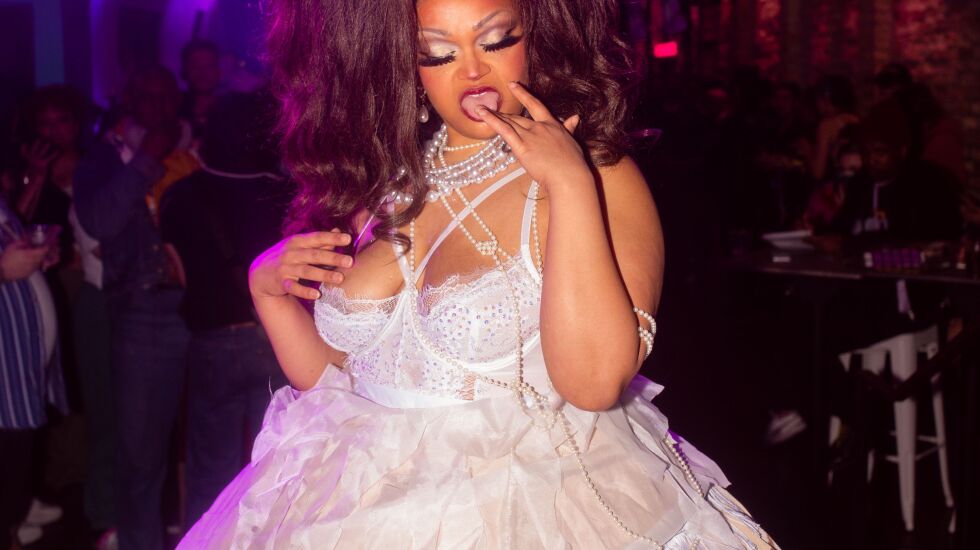
“This was able to push me out of my comfort zone and make me think differently about the work that I’m outputting,” Irregular Girl said. “That’s what I did with [Miracle Girl] every week. I hadn’t remembered what it was like.”
According to Vanity Unfair, the ultimate goal of the competition was to foster the bond formed by the mentor-mentee pair, uprooting the solitary culture sometimes created by the medium’s competitive nature, while also providing visibility and knowledge to younger artists.
“You’re entering this scene, and the relationships you have with your peers are competitive,” Vanity Unfair said. “These drag events should ultimately end up with people feeling loved and praised.”







